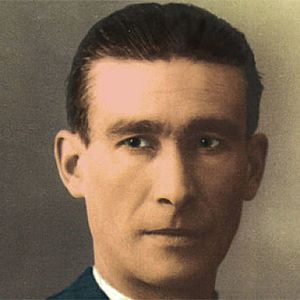Horacio Martínez Prieto facts for kids
Quick facts for kids
Horacio Martínez Prieto
|
|
|---|---|
 |
|
| Born | 29 December 1902 |
| Died | April 26, 1985 (aged 82) Paris, France
|
| Organization | CNT/FAI |
| Office | General Secretary of the CNT |
| Term | August – November 1936 |
| Predecessor | Miguel Yoldi |
| Successor | Mariano Rodríguez Vázquez |
Horacio Martínez Prieto (born in Bilbao, 1902 – died in Paris, 1985) was an important figure in Spanish labor movements. He was a Basque anarcho-syndicalist. This means he believed in a society without government, where workers' unions would manage everything. He was also part of the "libertarian possibilist" group, which meant he thought anarchists could work within existing systems to make changes. He served twice as the General Secretary of the CNT, a major workers' union.
Contents
Horacio's Early Life and Beliefs
Horacio Martínez Prieto was born in Santurtzi, a town in the Basque Country of Spain. His father was an anarchist, which influenced Horacio from a young age. Even though he was a good student, he had to start working early because his family needed money.
As a teenager, Horacio decided not to follow the popular ideas of his time, like nationalism or socialism. Instead, he formed his own group called "Los sin patria," which means "Those without a country." This showed his strong belief in a world without borders or governments.
His early activism led to some difficulties. At 18, he faced problems that forced him to leave Spain and go to France. Later, he returned to Spain and continued his work for social change.
Joining the CNT and Political Roles
In 1931, when Spain became a republic (the Second Spanish Republic), Horacio joined the CNT. The CNT was a very large and powerful union for workers.
He was invited to visit Russia in 1932. After his visit, he wrote a pamphlet that was critical of the Soviet system. This showed he wasn't afraid to share his honest opinions, even if they were unpopular.
After the CNT took part in the Revolution of 1934, Horacio became the Deputy Secretary of the CNT. In 1935, he was chosen to be the General Secretary of the CNT. This was a very important leadership role.
Horacio During the Spanish Civil War
The Spanish Civil War started in 1936. Horacio was in Bilbao at the time. He represented the CNT in the Basque Defence Council. He later moved to Barcelona, another important city during the war.
Horacio believed that the CNT should work with the government to help win the war. This idea was controversial among some anarchists. They thought working with the government went against their beliefs. Because of this, he resigned from his General Secretary role in November 1936.
However, he continued to be an important voice. He represented the Northern Region in the CNT's National Committee. He also joined the Political Advisory Commission (CAP), where he kept arguing for the CNT to be part of the government. He even served in government roles, like general director of commerce and Undersecretary of Health.
Horacio was also connected to the FAI, another anarchist group. He believed the FAI should become a political party to have more influence. He also tried to create alliances with other worker unions, like the UGT.
Life After the War and Legacy
When the Spanish Civil War ended in 1939, Horacio had to go into exile again. He lived in Paris, France. He continued to be a leader in the Spanish Libertarian Movement. He kept arguing that anarchists should be involved in the Spanish Republican government, even in exile.
He served as the Minister of Development in two governments formed by Spanish exiles. He also signed a statement in 1948 that called for the Libertarian Movement to become a political party.
Horacio Martínez Prieto passed away in Paris in 1985. He left behind many writings, including six volumes of his memories. These writings share his thoughts on anarcho-syndicalism, his views on the USSR, and his ideas for the future of the CNT.
Horacio's Published Works
Horacio Martínez Prieto wrote many books and pamphlets sharing his ideas. Here are some of them:
- Anarchosyndicalism. How we make the Revolution (1933)
- Facets of the USSR (Santander 1933)
- The Problems of the Spanish Revolution (1933)
- Relative Anarchism. Revisionist Fact Criticism and Suggestion (Mexico 1948)
- Spanish Anarchism in the Political Struggle (1946)
- Marxism and Libertarian Socialism (1947)
- Libertarian Possibilism (Choisy-le-Roi 1966)
See also
 In Spanish: Horacio Martínez Prieto para niños
In Spanish: Horacio Martínez Prieto para niños

